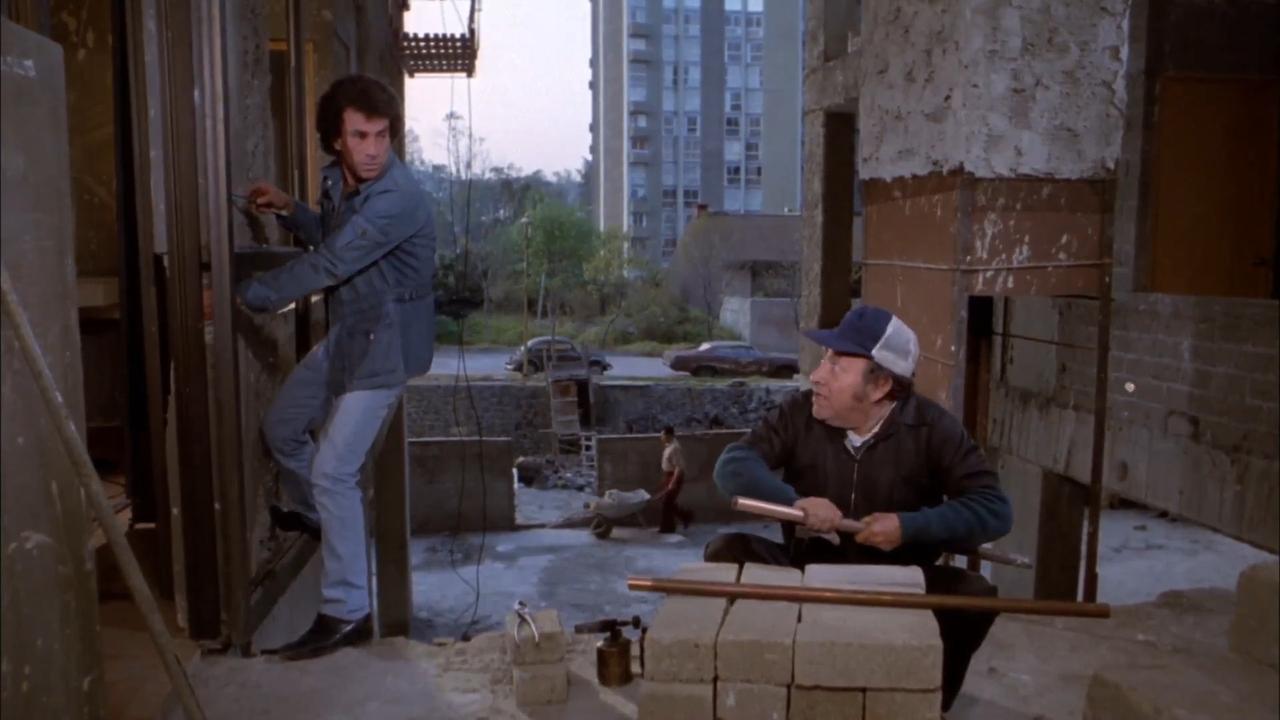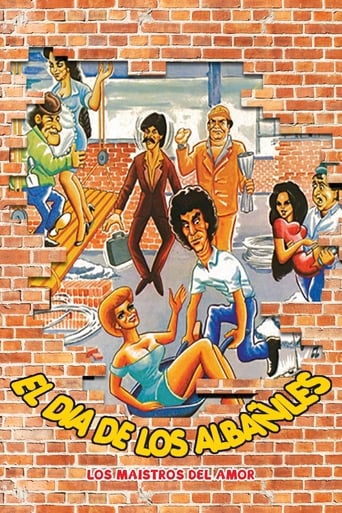ada
the leading man is my tpye
NekoHomey
Purely Joyful Movie!
Arianna Moses
Let me be very fair here, this is not the best movie in my opinion. But, this movie is fun, it has purpose and is very enjoyable to watch.
Edwin
The storyline feels a little thin and moth-eaten in parts but this sequel is plenty of fun.
insomniac_rod
"El Dia de los Alabañiles" is among the most popular movies from the "fiecheras" era. The movie represents everything that made that era a step backwards in Mexican cinema. We get albures, gratuitous nudity, vulgar dialogs, and infame performances.Alfonso Zayas and "Pirruris" steal the show with their comedic skills and albures abilities. Those guys are something...The movie is a social criticism against the labor class that always gets discriminated by their bossess and the economic problems of Mexican society. The problem with the movie is that it's too vulgar to be considered as a serious movie; and it tries to criticize "important" issues in a vulgar manner that will make you think that this is total crap.Also, the production values are poor, extremely poor.I suggest you to watch this movie if you can take extremely, tasteless low budget. Or, you can watch it to understand the "vibe" and modus operandi of the lower, lower class of Mexican society.
Felipe González
During the eighties, in Mexico we had a very sad and depressing film industry. In that time, the most popular pictures were either about "ficheras" (that can be roughly translated as whores) or about "albures" (an albur is a word game of sexual implications). "El Dia de los Albañiles" portraits a group of impossible characters, ranging from the incompetent workers to those who are plain thieves. A few nude scenes are included on the movie, this scenes have nothing to do with the plot, but were almost a requirement for Mexican movies of the mid eighties. Of course, in the worst Mexican movie tradition, the heroes are the poorest characters, and their boss is, of course, the villain. This picture must not be mistaken with "Los Albañiles", which is based on a novel by Vicente Leñero.

